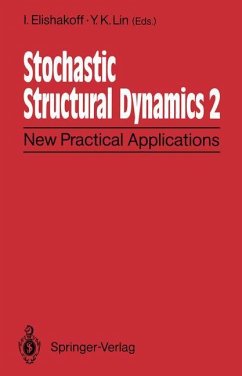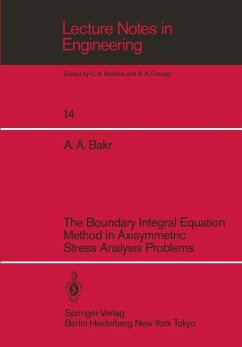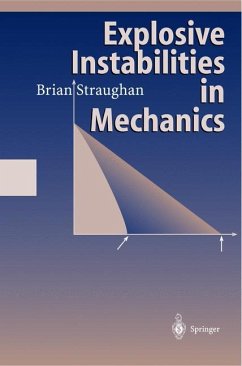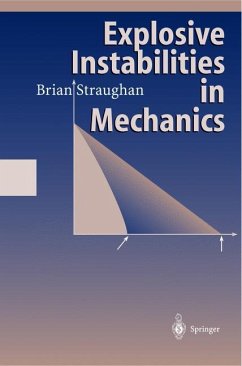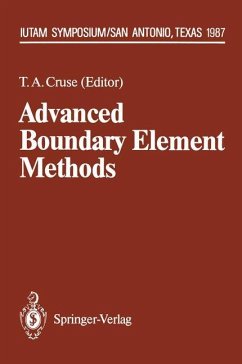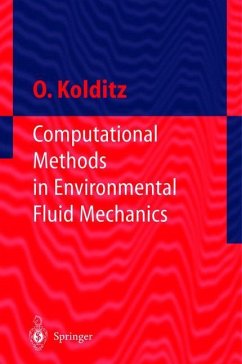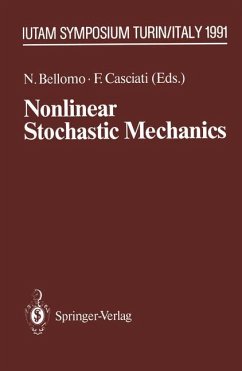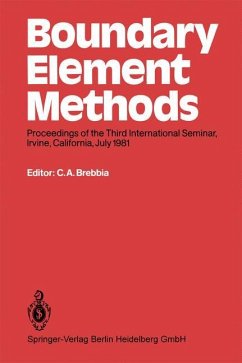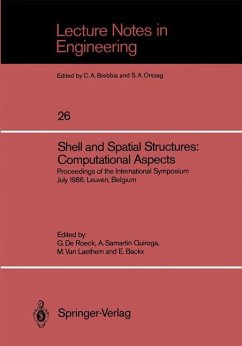
Boundary Integral Methods
Theory and Applications
Herausgegeben: Morino, Luigi; Piva, Renzo

PAYBACK Punkte
38 °P sammeln!
This volume contains edited papers from IABEM-90, the 1990 Symposium of the Interna tional Association for Boundary Element Methods (IABEM). As stated in the By-Laws of the Association, the purposes of IABEM are: 1. to promote the international exchange of technical information related to the devel opment and application of boundary-integral equation (BIE) formulations and their numerical implementation to problems in engineering and science, commonly referred to as the boundary element method (BEM); 2. to promote research and development activities for the advancement of boundary integral equ...
This volume contains edited papers from IABEM-90, the 1990 Symposium of the Interna tional Association for Boundary Element Methods (IABEM). As stated in the By-Laws of the Association, the purposes of IABEM are: 1. to promote the international exchange of technical information related to the devel opment and application of boundary-integral equation (BIE) formulations and their numerical implementation to problems in engineering and science, commonly referred to as the boundary element method (BEM); 2. to promote research and development activities for the advancement of boundary integral equation methods and boundary element solution algorithms; 3. to foster closer personal relationships within the BEM community of researchers. The objectives of the Symposium, in line with those of the Association, was to provide a forum where the two "souls" of the Association, i. e. , (i) mathematical foundations and numerical aspects, and (ii) engineering applications could be integrated. Webelieve that the first aspect has been neglected in too many of the BEM Symposia held in the past, which, with a few exceptions (notably, the IUTAM Symposia on the subject) have emphasized the practical aspects of the method. As a consequence, we have tried to give a stronger emphasis to the more theoretical issues: this is attested for instance, by the fact that the two general lectures were given by Prof. Gaetano Fichera, of the University of Rome "La Sapienza," and Prof.





